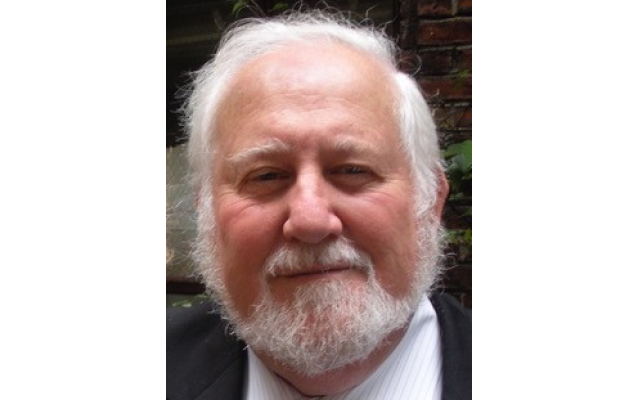My Family’s Immigration
Allen Lipis takes a different look at the modern immigration debate, sharing his family's story.
In the face of the immigration battle that is going on now, it is useful to review the immigration issues that occurred a hundred years ago by telling you about how I came to be born in the U.S.
In 1914, World War I broke out and Hungary was allied with Germany against France and England. My grandparents, Jacob and Freida Klein, were living in Hungary at the time, in a small village called Szamos Ujvar in Transylvania. They had a small farm with chickens and a few cows, and they grew vegetables. They were Orthodox Jews.
In 1916, Hungary started to draft men into their army, and many immigrated to the U.S. to avoid being involved in the war. My grandfather was one of them. He said goodbye to his wife and four young children and promised to send them money from the U.S. through the Red Cross, which he later did. My mother was one of those children, then 4 years old. There was no way to communicate back then. No phone, no computers, nothing except by letter, and that was iffy with the war going on.
Jacob had been a supervisor building roads in Hungary and was accustomed to working as a laborer. He heard of work in Youngstown, Ohio, moved there to a rooming house and started work as a laborer at Youngstown Sheet and Tubing. His living costs were minimal and there was virtually no income tax to pay. He eventually became a foreman and accumulated $10,000 in savings in the three years that he worked there. He had a shoemaker sew $2,000 into his shoes as emergency money and always wore those shoes.
After the war, he returned to his wife with a huge amount of money and tried to start several businesses, but none of them were successful. The economy in Hungary was in a depression. The soap factory failed and the piece goods business went nowhere. Jacob knew there was a better job and a better life in the U.S., but his wife did not want to go because she would be giving up the huge extended family living nearby.
In early 1921, Jacob was informed by the U.S. Embassy that the U.S. government was going to put significant restrictions on immigration there, and either Jacob and his family had to leave very soon or they would not be able to come to the U.S. Indeed, the Immigration Restriction Act of 1921 was passed on May 19, 1921. It restricted European immigration to 3 percent of the U.S. citizens from each country as recorded in the 1910 U.S. Census, with few exceptions. With those restrictions certain to occur, my grandmother agreed to leave her extended family, knowing full well that she would never see them again … she never did. The Kleins arrived in the U.S. in March 1921. They had no help and had to make their way in this country on their own … and they did.
My grandparents had no formal education, but my Zeyda, my grandfather, worked all of his life in the produce business, first selling fruits and vegetables from his truck traveling around the neighborhood and eventually opening a store in New York after they moved back there to be with other family members that had made it to the U.S. also. Most of the extended family stayed in Europe and were killed in the Holocaust.
My uncles never went to college. They all grew up as Americans, and two of them served in World War II. None of them ever needed government assistance. My mother never graduated from high school but found jobs in the bakery business and then in the stock market. There is a similar story about my father, who always found work even in the depression years and thereafter, but that is another story.
We have immigrants wanting to come to the U.S. now, and most of them want to work, want to be Americans, and want a better life for themselves and their families. They are like my grandparents. They come from a different country; they speak a different language, but they want a better life for their family and are willing to work hard to achieve it. Of course, they should speak English, but that is not a reason to exclude them. My grandmother learned it studying with her children as they went to public school, and she was praised by the judge for that when he certified her as a citizen. Immigrants want the same chance my family had, and we need to find a way to make this happen.
The Bottom Line: “Give me your tired, your poor,
Your huddled masses yearning to breathe free,
The wretched refuse of your teeming shore.
Send these, the homeless, tempest-tost to me,
I lift my lamp beside the golden door!”




comments